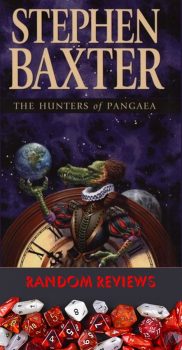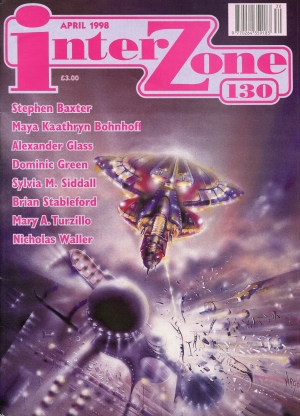Random Reviews: “The Modern Cyrano” by Stephen Baxter

Not only did Stephen Baxter win the first Sidewise Award for Best Short Story and the second Sidewise Award for Best Novel, but he went on to serve on the Sidewise Award jury for several years, so he has very strong alternate history credentials. His short story “The Modern Cyrano” is subtle alternate history set during the middle of the nineteenth century.
Written as a series of entries in Queen Victoria’s journal during the period from September 1849 through May 1851, Baxter details the deaths of two of Prince Albert’s close friends and Victoria’s political allies. In the pages of her diary, Victoria plays amateur sleuth, noting down the details of their deaths as well as an accusation raised in both cases that the unexpected death of George Anson and the accidental death of Lord Palmerston were both caused by Isambard Kingdom Brunel, who was nearby around the time of both deaths.
In the 1850s of Baxter’s tale, Brunel, in addition to the massive engineering projects he was undertaking in our world, including the Great Exhibition, Brunel is also experimenting with a form of rocket. His push to move England forward has stuck in the craw of Charles Sibthorp, an ultraconservative member of Parliament who wanted England to remain the way it was in his youth in the 1700s. An antagonist to Prince Albert, Sibthorp views anything to support the Great Exhibition as an evil to be fought against.
The story’s arc is pretty straight forward from the moment the characters are introduced, but the enjoyment of the story comes from the combination of reading Victoria’s diary and seeing her putting the clues together and a nineteenth century Nancy Drew and the side notes that Baxter includes to provide the reader with the context needed to fully understand the characters and motivations. He has managed to incorporate his “data dumps” into the story in a realistic and entertaining way.
